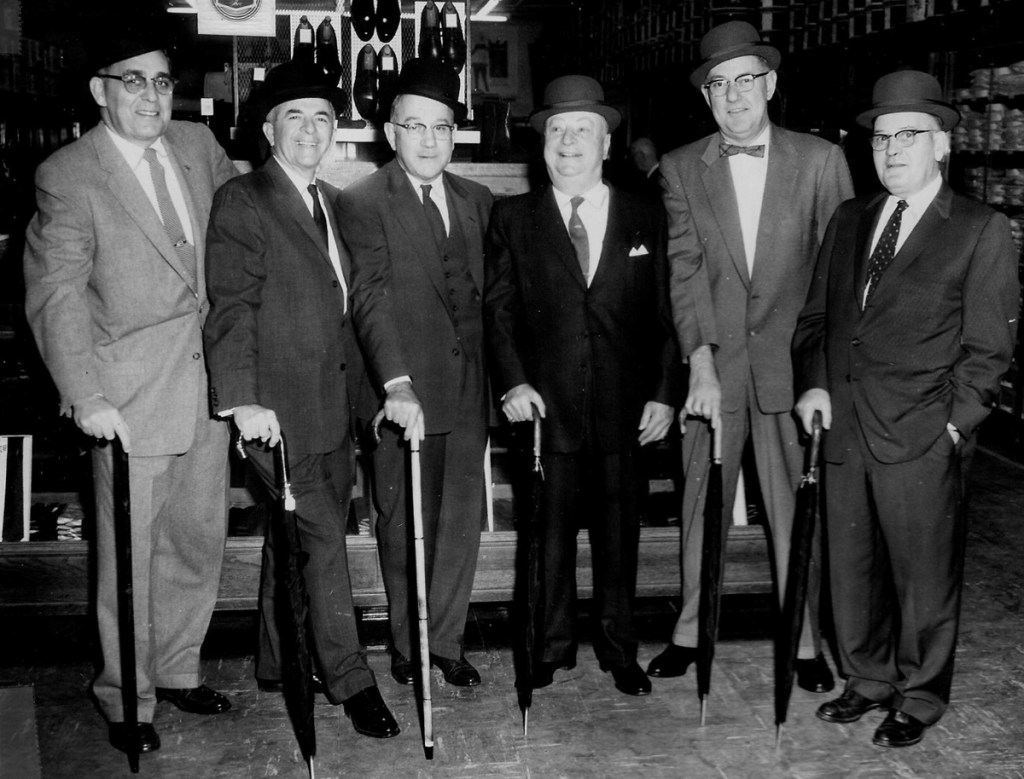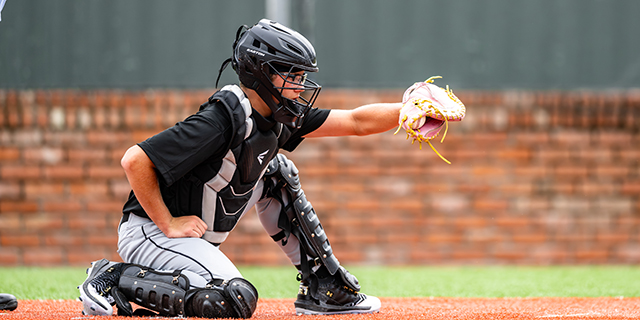Kiwanis, a club built to last
Published 10:00 am Sunday, August 9, 2020

- From left, Hawley Gary, Arnand Viator, Mike Flory, Justin Wormser, Lawrence Simon and Erland Johnson, six members of the Kiwanis Club celebrates the clubs’ 25th anniversary on Jan. 27, 1960. From then to now, the club has focused on giving back to New Iberia.
The year was 1935, and the U.S. was making many strides forward despite the years of depression which continued.
The U.S. Social Security Act, providing pensions for the unemployed and elderly had been created. Amelia Earhart became the first person to fly solo across the Pacific Ocean, and the first completely synthetic fiber, nylon, was produced by a Dupont chemist.
It was with this spirit of hopefulness for the future that a group of 27 New Iberia business and professional men met in the Gold Room of Hotel Frederick to discuss the formation of the New Iberia Kiwanis Club.
The first regular meeting was held on Thursday, Jan. 31, 1935, at 12:10 p.m. Weekly meetings of the club continue to be held at noon every Thursday.
As an organization dedicated to serving others, Christmas baskets were distributed, tourist trade in the area was promoted, and funds were raised to assist causes benefiting underprivileged children.
A soup kitchen at Magnolia Elementary, supervised by principal Nina Gates, fed students at a cost of 10 cents per child. This newly formed Kiwanis Club made its influence known in other areas, also. They used their collective voices to advocate for the building of a new courthouse, which now sits in its present location, and for the building of an improved filtering and water softening plant to combat the scale and rust that was forming in the city water supply.
In recognizing the value of supporting the development of the children of New Iberia, the Kiwanis Club promoted the activities of the 4-H Clubs in schools and sponsored the first Key Club in 1944 at New Iberia High School.
The club recognized the need for an organized recreational program, and with the assistance of then-Mayor Armand Viator, and other members of the club, a committee was formed to petition the Police Jury for a paid Recreational Director’s position.
With the end of World War II, the Louisiana Sugar Cane Festival was reorganized, and the Kiwanis Club took an active role in the festival, contributing to the selection of Queen Sugar, and becoming the sponsor of the Children’s’ Parade in 1947.
Every year since, club members can be seen directing students, floats and baby kings and queens along the parade route on the Saturday morning of the Festival. In keeping the Kiwanis Mission of improving the world one child and one community at a time, a major fundraiser to provide monies for their ongoing programs was initiated in 1958.
This was the year of the first Pancake Supper held in New Iberia. In the decades since, all proceeds have been dedicated to improving the lives of the children in our community while contributing to sweet memories of syrupy-pancakes and sausages and the comradery of family and friends.
In the 1900s, the U.S, and much of the world, found itself fighting a different kind of war, that of the polio virus. Also known as infantile paralysis because of the numbers of children impacted, the disease became widespread across the nation until a vaccine was developed by Jonas Salk in 1955. In 1962 Albert Sabin developed an oral vaccine that became widely available to the public. In 1963, the Kiwanis Club joined with Iberia Parish Medical Society and the Iberia Parish School system in a “Stop Polio” oral polio vaccine program.
This invaluable program consisted of the administration of the vaccine, put on sugar cubes, in three doses spaced six weeks apart.
It was given to every person over two months of age and distributed in 15 clinics in the parish. Each clinic was located in a public school building and Kiwanis Club members served as clinic coordinators and assistants.
Over 90 percent of the citizens of Iberia Parish were immunized through this program.
In 1988 the Club enhanced its membership with the introduction of women into the local organization, and their influence has been felt in the many club programs and activities throughout the years.
The Kiwanis focus on the healthy development of children was again evident in 1990 when the New Iberia Kiwanis implemented the “Know to Say No” drug awareness program for elementary school children in the Iberia Parish School System and in the private schools of Iberia Parish.
This program grew into a community effort with corporate sponsors providing t-shirts, headbands, and pencils to students. Teachers were given guidebooks to reinforce the message, and Kiwanis members participated in leading the programs at the various schools. This highly successful program which has expanded to include other topics such as children’s self-esteem, bullying and healthy living evolved into the “Harvey the Rabbit” show in 1992. Led by a team of ventriloquists, Tim and Laura Allured, the program continues to entertain and teach students in elementary schools and is a highlight of the Annual Kiwanis Pancake Supper.
More recently, the club has supported the youth of The Boys and Girls Club by hosting pizza Quiz Bowl parties, and a well-attended Kiwanis Trivia Night held in 2019 provided for a fun-filled evening while taxing the brains of many in our community for a worthwhile cause.
The name “Kiwanis” was derived from an American Indian expression meaning “We trade.” In 1920 the motto of Kiwanis became “We Build,” and then in 2005 the international organization voted to change the motto to “Serving the Children of the World.” Since its origin in January of 1935, and in the 85 years since, the New Iberia Kiwanis Club has continued its mission of building up our community through its programs that nurture and strengthen the youth of our parish.





